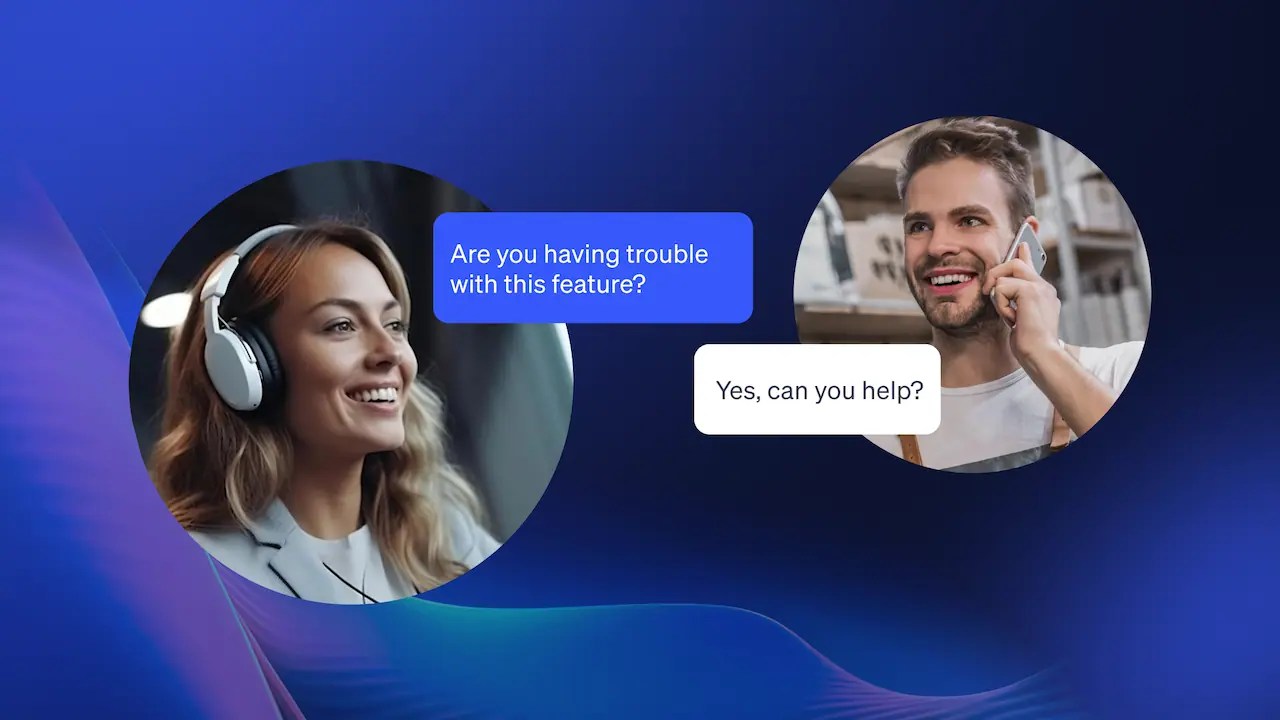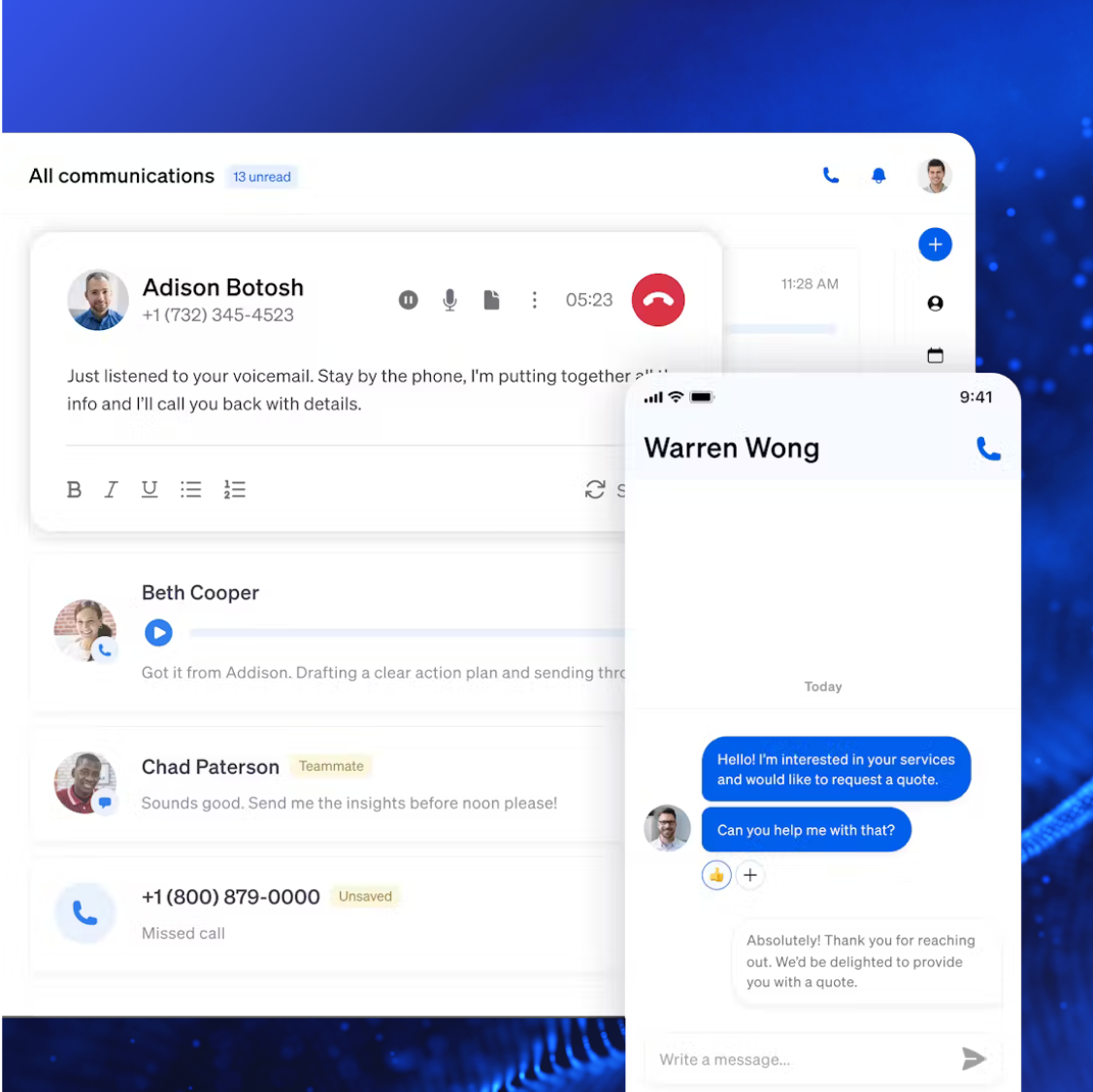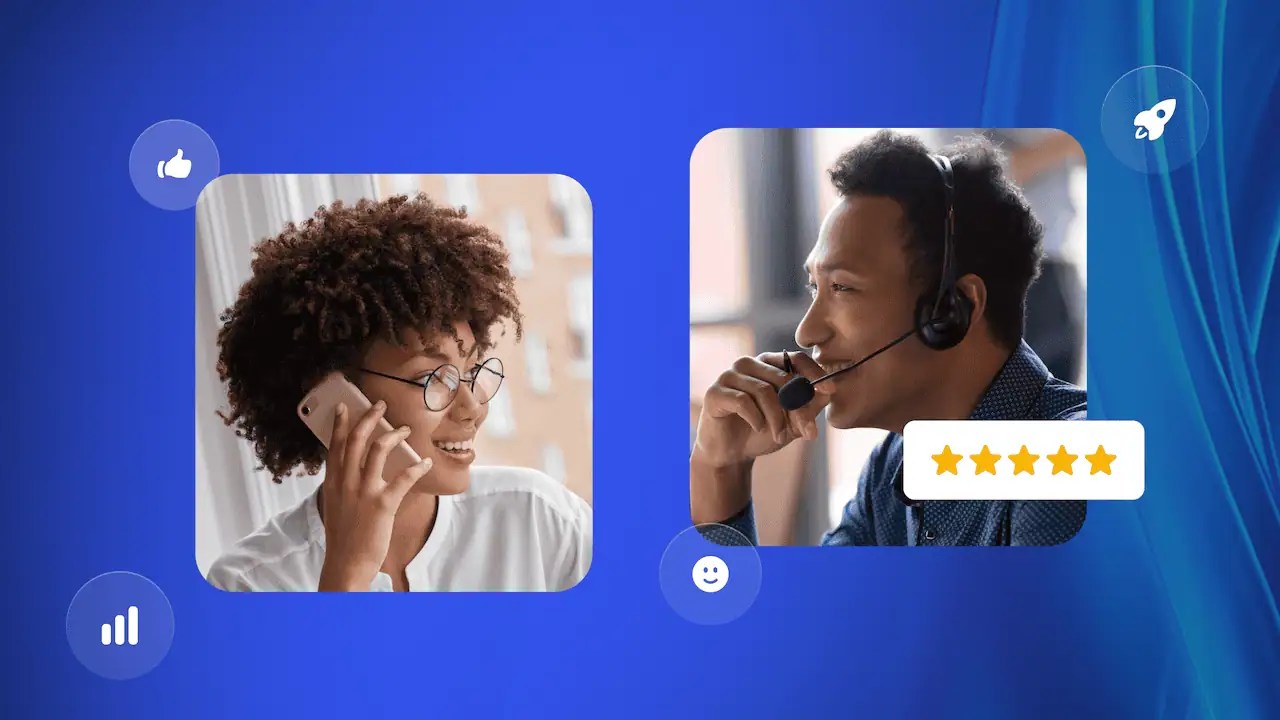It’s becoming increasingly convenient for customers to reach your brand. What’s not convenient for your employees is fielding customer requests across each digital platform.
Your customer-facing teams can’t afford to miss a single interaction with customers. Missed connections can quickly balloon into bad customer experiences without your team members even getting the opportunity to dig into the customers’ initial reasons for seeking help.
Creating a more comprehensive, personalized customer service experience is important. And today, it’s critical that brands do so across all the digital channels that their customers most frequently use.
While this can be a big undertaking, the good news is that choosing the right digital customer service platform for your business can uplevel your customer service efforts — and your customer retention rates.
What Are Digital Customer Service Platforms?
Digital customer service platforms are tools that capture and organize all customer support requests and facilitate responses. Many of these tools may also come with analytics to help you understand common customer pain points or needs.

Businesses today may use multiple tools, including social media management software, diverse communication platforms, and help desk support software, in a digital customer service tech stack. Ideally, finding a set of tools that can provide omnichannel support for multiple platforms will help you centralize and streamline processes.
Related: Best Support Desk Software for Service Requests
Is your CX falling short?
Assess and elevate your strategy with the Gartner® CX Maturity Model report.
Why Brands Need Digital Customer Service Platforms
Digital customer service platforms offer multiple core benefits, both for your internal customer support teams and for your customers.
Unify multiple channels
Customer service platforms can provide a central hub to help you manage inquiries from multiple communication channels, including emails, chat messaging, phone calls, social media, and other online portals.
As many businesses and call centers are using virtual phone numbers, the VoIP system itself can be managed alongside other digital platforms, potentially on one dashboard. And as you unify multiple channels, it’s easier to ensure no customers are slipping through the cracks, creating a stronger digital experience.

Streamline workflows
These platforms can be game-changing when it comes to streamlining workflows because they are capable of automating tasks, assigning tickets, tracking support progress, and managing agent workload.
All this work would have required countless hours of tedious manual labor if call center automation weren’t available. Take some of the busy work off your customer service team members’ plates and allow them to work more efficiently by focusing on tasks that require real human beings to do them.

Empower service agents
Your service agents will have more resources at their fingertips than ever before, with complete knowledge bases, centralized customer data, and various communication tools available to help them resolve issues quickly and efficiently.
Your customer service team wants to provide outstanding support to your clients. And this allows them to efficiently deliver personalized experiences that directly address specific customers’ needs.
Improve overall customer experience
Digital customer service platforms can improve the customer experience in both big and small ways.
In many cases, customer experience software offers support for self-service help functionality. This may include online knowledge bases or troubleshooting guides that customers can use to solve their own problems. Self-service options are available 24/7 and offer people quick solutions to simple problems.
And, as support agents are able to leverage automation, customer data, and other resources, they can deliver personalized, enthusiastic customer support faster and more reliably when they need to.
Great customer experience should be centered around meeting the customer where they are and helping them how they want to be helped. If your employees focus on these things, they can strengthen the customer journey at all touchpoints, resulting in improved customer success and a high retention rate to match it.

How Customer Teams Use Digital Customer Service Platforms
Depending on their specific needs and roles, customer-facing teams use digital customer service platforms in a variety of ways.
Contact center agents
Contact center agents are often responsible for providing phone support, though they may also offer support through SMS messaging, emails, and video calls. They manage customer inquiries efficiently by accessing the business’s knowledge bases and unique customer data.
Support agents may use customer service platforms to ask questions to better resolve customers’ issues. The agents might also use the platforms to collaborate with other colleagues in ways that might include passing off customers to people who can better help them.
Call center agents are often crucial for creating a positive customer experience.
Today, 54% of customers still prefer a phone call as a primary customer service channel:

And using the phone is the most common communication method when customers need to resolve important or serious concerns.
Help desk technicians
Help desk technicians are trained to diagnose and resolve technical issues quickly.
For example, a healthcare help desk technician might assist clients who can’t access a patient portal. A tech support agent may help customers resolve a glitch that prevents them from correctly using the company’s software.
Help desk technicians also track ticket progress and prioritize tasks, determining which customer inquiries are the most urgent and acting accordingly.
Web chat specialists
Web chat specialists (sometimes also known as “live chat agents”) engage in real-time conversations through chat that’s often available on the company’s website or mobile app.

They answer common questions, give customers basic help like providing them with tracking updates, and — when needed — escalate complex issues to higher-level agents. Chat specialists are often the first line of defense for your support team and play a vital role in the customer experience.
Related: How to Add Live Chat to Your Website (+ Best Practices)
Social media managers
Social media is an essential platform for building customer relationships and establishing loyalty.
Social media managers may spend just as much time on customer service as marketing work. They monitor brand mentions, respond to customer queries, and handle social media or PR crises as they arise.
Often, these managers are responsible for multiple digital channels across social media. So, having a centralized platform with a single dashboard is crucial.

Types of Digital Customer Service Platforms
There are many different types of digital customer service platforms. Some might offer multiple functionalities, while others specialize in providing tools for specific customer teams.
Let’s look at eight types of these cloud-based platforms and five of the most popular and well-rounded tools in each category.
1. Contact center platforms
Contact center platforms are one of the most important types of customer service platforms to consider, as they can quickly improve the contact center experience for your customers and employees.
These platforms optimize call center operations by routing calls with great efficiency, automating tasks with interactive voice response, and allowing for improved agent productivity.
Ideally, they also provide call recording and transcription features, offer omnichannel support, and provide in-depth analytics to help you track customer satisfaction metrics and agent performance.

Deploying these features can lead to reduced costs and improved customer service. That’s a win-win revenue-boosting scenario — especially once they start leveraging customer service automation.
Here are the top five contact center platform providers:
- Nextiva
- Five9
- Genesys
- NICE CXone
- Talkdesk
2. Help desk software
Help desk software can improve the customer experience in a number of ways. This software can provide self-service help options, including providing a knowledge base. It helps you manage, track, and prioritize customer support tickets and may provide your team with their own internal knowledge base.
These features ensure that you don’t miss any customer concerns and that you’re able to resolve issues both faster and at a lower cost.
The five top providers of help desk software are:
- Freshdesk
- Kustomer
- Zoho Desk
- Jira Service Management
- ServiceNow
3. Live chat software
Live chat software offers real-time conversational support from live agents.
The use of this software can lead to improved customer satisfaction and increased sales conversions — especially since agents might use it to answer questions that impact whether consumers make purchases.
The top five live chat software providers are:
- Intercom
- Nextiva
- Crisp Chat
- LiveChat
- Zendesk Chat
4. Conversational support platforms
Conversational support platforms and live chat software are two separate platforms that both offer online chat support.
A conversational support platform leverages bots or AI to answer basic customer inquiries. It escalates more complex issues directly to live agents. Using it makes prioritizing customer needs easy and facilitates customer experience management.
This software can increase website engagement and quickly provide answers to common questions while ensuring that significant issues are efficiently escalated. Using a conversational support platform is a simple way to filter out more easily answered questions, freeing up your agents to focus on customers who most need their assistance.
The top five conversational support platforms are:
- Ada
- Nextiva
- Manychat
- LivePerson
- Amelia
5. Social customer service platforms
Social customer service platforms focus intensively on customer interactions across multiple social media sites, including public comments and private messages.

These platforms can help you see all social media interactions on a single dashboard to improve response times and maintain a consistent brand voice. Overall, this can result in enhanced brand advocacy thanks to fostered online communities and a greater ability to respond privately and publicly to your customers’ needs.
Social customer service platforms might include social listening features to help you proactively monitor online brand mentions.
These tools are essential for managing social media crises promptly and effectively, which results in improved brand reputation and customer loyalty.
Some platforms may offer customer service features. But other social media management tools focus primarily on post-scheduling and marketing analytics and completely lack customer service functionality. So, it’s important to choose a provider carefully.
Here are the top five providers for social customer service platforms:
- Nextiva
- Sprout Social
- Hootsuite
- Buffer
- Brandwatch
6. Knowledge base software
Knowledge base software empowers customers with self-service options by providing accessible, searchable, and up-to-date help articles specifically for the brand’s products and services.
Some help desk software may support knowledge base features. But in many cases, opting for specialized knowledge base software opens the door to more advanced features and functionality — and thus a better customer experience.
Knowledge base software can dramatically reduce the number of support tickets your team has to handle and can improve customer satisfaction.
The top five knowledge base software solutions are:
- Help Scout
- KnowledgeOwl
- Document360
- Confluence
- Bloomfire
7. Customer feedback management software
Customer feedback management software allows you to gather invaluable customer insights with surveys throughout the customer journey. This customer service platform helps you effectively analyze feedback to gain actionable insights you can use to improve products, services, and support.
Collecting and implementing customer feedback is one of the best ways to improve the user experience, driving higher customer satisfaction rates and loyalty.

The five best providers of customer feedback management software are:
- Qualtrics
- SurveyMonkey
- InMoment
- Medallia
- Jotform
8. Customer relationship management software
Customer relationship management (CRM) software is often considered a sales and marketing tool. However, it plays an important role in facilitating customer service interactions and shouldn’t be overlooked.
It’s essential to see your customer journey as a cross-functional program with teams that work together to ensure no holes or hiccups in your customer experience.
Your CRM system stores important customer information, including consumers’ names, purchase histories, and past customer support inquiries. Many customer service tools integrate with popular CRM software, so your contact center and support agents can access this data to better predict and accommodate customer needs across all digital channels.
For example, Nextiva’s unified customer experience management platform integrates with popular CRM systems, so support agents can see each customer’s profile as they answer incoming calls. This is crucial for personalized support.
The top five CRM providers are:
- HubSpot
- Salesforce
- Zoho CRM
- NetSuite
- SugarCRM
Related: 7 Features Customer Service Software For Your Support Team
When to Adopt a Digital Customer Service Platform
Whether you’re missing a certain type of software in your tech stack or starting from scratch, here are a few telltale signs: it’s time to find new customer service solutions.
Your customers are…
- Expressing frustration with slow service, lack of self-service, or channel silos.
- Churning more often, potentially due to poor customer service experiences.
- Publicly voicing dissatisfaction online.
Pay close attention to your customer feedback surveys. And leverage social media software to keep an eye on what people are saying both to and about your business.
Your team is…
- Bogged down by manual tasks and limited tools.
- Frustrated with the platform and is having trouble handling complex queries.
- Hampered by a lack of rich data insights for informed decisions.
In order to deliver outstanding customer service, your team needs the right resources, tools, and training.
The right platform can help with all these issues by providing knowledge bases, automation tools, streamlined work processes, easy-to-use dashboards, and analytics that can identify skill gaps.
Your business is…
- Growing quickly and needs scalable business software.
- Planning to add new support channels.
- Facing integration challenges with essential tools.
On the business side, you may realize you need customer service solutions when your company is facing growing pains. These often include adding more channels, managing an increased volume of customer support needs, or trying to integrate existing tools into an increasingly complicated tech stack.
Always consider the potential for business scalability when choosing customer support platforms. Look for software that offers robust functionality and integrates with tools that you’re already using and might need in the future.
Digitize Your Customer Experience Easily with Nextiva
Finding the right customer service platform can be a game changer.
It’s important to choose one that best aligns with your business and its customer service goals.
Nextiva is the best digital customer service platform for contact centers — especially if your support team is fielding complex inquiries over the phone or you have a high volume of inbound calls.
Nextiva offers omnichannel support platforms for VoIP systems, including phone, video, text messaging, and detailed voice analytics functionality.
We also offer social media management software that allows you to schedule and publish content while managing customer interactions and implementing social media listening.
We’re designed to help businesses scale over time and improve their customer service with integrated communication capabilities across all their teams. Our clients deliver stronger customer support for more personalized experiences, making it easier to implement optimization at every touchpoint along the customer journey.

Related: 10 Best Customer Communication Management Software
Customer experience done right.
Learn how Nextiva can help you improve your customer experience today.















 Customer Experience
Customer Experience 








